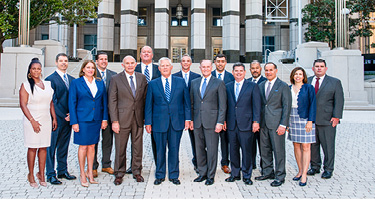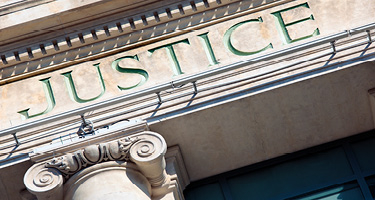The newest culture war in American life? ESG. The term, which refers to an investment strategy that considers a company’s “environmental, social and governance” profile, was relatively obscure pre-pandemic, forming part of the lexicon mainly of institutional asset managers, investor relations professionals and Fortune 500 company directors.
Although ESG has exploded into our mainstream consciousness, it has developed a variety of meanings, leading to confusion and disagreement about its objective. This article posits, however, that ESG has been profoundly misunderstood. Once we consider its origins, it is clear that ESG squarely belongs as a topic of discussion in the boardroom and as part of a corporation’s long-term strategic plan.
Who Cares Wins: The Origins of ESG
To make sense of ESG, it is helpful to understand its beginnings. The term was coined in the 2004 United Nations Who Cares Wins report produced by a joint initiative among the U.N. and some of the world’s largest financial institutions. The effort was part of a years-long strategy by U.N. Secretary General Kofi Annan to partner with business leaders, particularly in the financial sector, to promote a stable, sustainable global economy.[1]
Annan’s determination marked a profound shift. For decades, many considered the U.N.’s programs and policies to be distinctly anti-business. As University of Pennsylvania law professor Elizabeth Pollman has recounted, Annan saw an opportunity to make business a “part of the solution for advancing [U.N.] goals” to address globalization’s strain on the environment and society.[2] The sponsoring financial institutions recommended ways “to better integrate environmental, social and governance issues in analysis, asset management and securities brokerage” services. Pollman explains that large banks, insurance companies and investment advisers were drawn to the effort because of studies showing the “business case” for ESG.[3] According to the report: “Companies that perform better with regard to these issues can increase shareholder value by, for example, properly managing risks, anticipating regulatory action or accessing new markets, while at the same time contributing to the sustainable development of the societies in which they operate. Moreover, these issues can have a strong impact on reputation and brands, an increasingly important part of company value.”
From Elon to the State of Florida, ESG Faces Criticism
In April 2022, Elon Musk Tweeted to his followers, “I am increasingly convinced that corporate ESG is the Devil Incarnate.” Devil or not, ESG’s political critics say it is a strategy to promote “wokeness,” or left-leaning, progressive values in corporate America and (ultimately) American culture. Still, other critics are focused on the bottom line; they claim ESG promotes a shift in values at the expense of value, with pensioners and other investors forced to sacrifice financial returns for the sake of socially motivated agendas of the institutions managing their funds.
Since 2022, several states have passed so-called “anti-ESG” legislation or policies. These measures vary, but their gist is to prohibit ESG investing with state funds, including public retirement system assets, and to require the consideration solely of “pecuniary” factors when selecting investments. Notably, Florida announced in December 2022 that it would pull $2 billion of state investments from management by BlackRock, a company that considers ESG in its investment programs.
Staying on Message
Setting aside the “woke capitalism” narrative, the central message of Who Cares Wins remains critically important for corporate boards and C-suite managers to understand. Its aim, after all, was to highlight “issues which have or could have a material impact on investment value.”
Who Cares Wins framed ESG as a logical part of corporate risk management and as an awareness of opportunities to innovate, explore new markets and respond to changing consumer and societal preferences. Indeed, the report envisioned a corporation’s ESG strategy as a possible source of competitive advantage. In particular, Who Cares Wins emphasized the need for companies to monitor climate change’s impact on their business; prepare for future regulation and the eventual transition toward renewable energy sources; guard against environmental liabilities from company operations, products and services; improve workplace health and safety to increase worker retention and productivity; engage with their communities; and increase accountability of corporate decision-makers and promote honest and ethical behavior.
Although ESG has exploded into our mainstream consciousness, it has developed a variety of meanings, leading to confusion and disagreement about its objective."
The report conceived of ESG as directly linked to firm performance and enhanced investment returns. It was never intended to replace traditional investment analysis or justify making investment decisions based on political or moral agendas. In fact, the report explicitly reminds pension fund trustees that in analyzing ESG factors, they must consider their fiduciary obligations to act in the best interest of plan participants.
ESG’s Seat at the Table
Today, the ESG factors considered in Who Cares Wins have expanded to include a myriad of issues like biodiversity and water scarcity; worker training; diversity, equity and inclusion; and measures designed to give shareholders a greater voice.
As business risks and opportunities evolve, the topics encompassed within ESG may change, but the board’s responsibility to consider these issues is not new. State corporation law has long provided that a company’s business and affairs are managed by or under the direction and subject to the oversight of the board of directors.
One challenge facing corporations and their boards is that ESG is, by its very nature, long-term in focus. Matters like climate change ask boards and C-suite executives to manage risks that may arise far into the future and that they perceive as not affecting them or even their grandchildren.
Under state corporation law, though, the board is responsible for developing and monitoring the corporation’s long-term strategy. Further, directors must act in the company’s best interest, not any one shareholder or group of shareholders who may have a shorter-term focus.
A corporation exists only by the will of the people as expressed through state corporation statutes. And business corporations, certainly publicly traded ones, exist to provide some benefit—a product or service—to society at large. Thus, it is entirely reasonable to expect corporations with perpetual existence to be mindful of their impact on people and planet, along with the effect of those impacts on the value of the corporate enterprise. Similarly, it is also reasonable to expect that they be forward-thinking and consider innovative opportunities to maintain their competitiveness and brand.
The board, if properly informed, acting in good faith and without conflicts of interest, has wide latitude to consider ESG factors in its decision-making and the discretion to decide among short-, medium-, or long-term time horizons. Balancing risk and reward and exercising informed business judgment is the essence of the board’s role.
ESG in Practice
Considering ESG is an essential part of a board’s fiduciary duties, and institutional investors, like BlackRock, are paying attention. As life expectancies rise, workers must grow assets to fund longer retirements. Because a worker in her 40s may have a 30-year investment horizon or longer, it is incumbent upon the plan fiduciary managing her assets to consider the sustainability of the companies in the investment portfolio given environmental changes, evolving consumer preferences, the availability of “greener” and “cleaner” technologies and production practices, trends in human capital management and other factors.
But beyond fiduciary responsibilities, ESG makes good business sense. And—because investors are demanding it—it is consistent with free market principles. To prohibit ESG by law would be shortsighted government interference in business and, even worse, may lead to foregone opportunities and even investment losses for retirees.
Maureen Gershanik is a partner and a member of Fishman Haygood’s Business Section in New Orleans, La. She advises clients on ESG initiatives and practices in the areas of corporate law and governance, securities law, and mergers and acquisitions. She was a panelist for “Activism and ESG Considerations in Today’s World” at the 35th Annual Tulane Corporate Law Institute this past March, and she is a New Orleans 2023 Best Lawyers “Lawyer of the Year” in both Mergers and Acquisitions Law and Securities/Capital Markets Law.
[1] © Elizabeth Pollman, The Making and Meaning of ESG 7-9 (Eur. Corp. Governance Inst., Law Working Paper No. 659/2022, 2022).
[2] Id. at 9.
[3] Id. at 11.


























